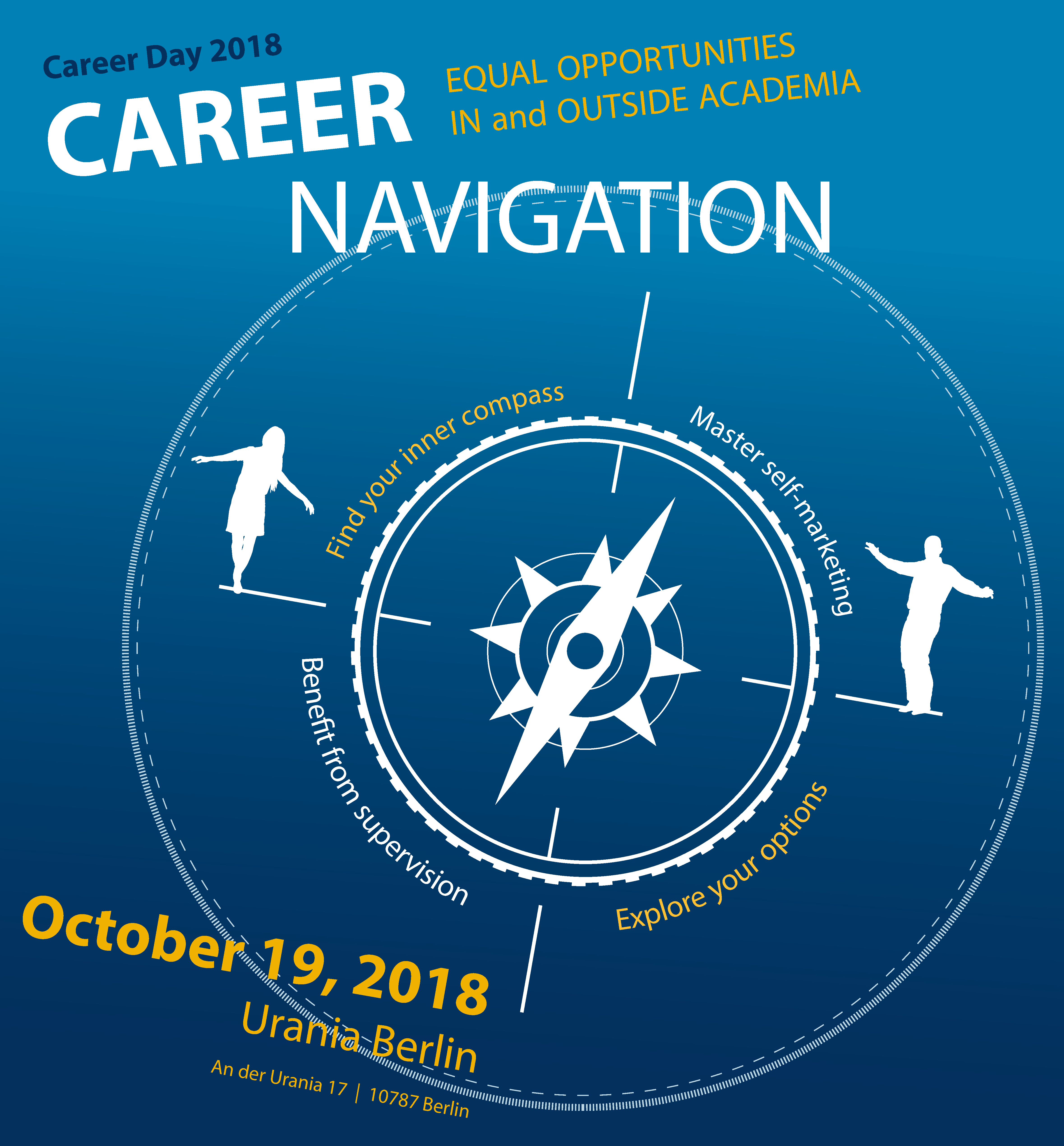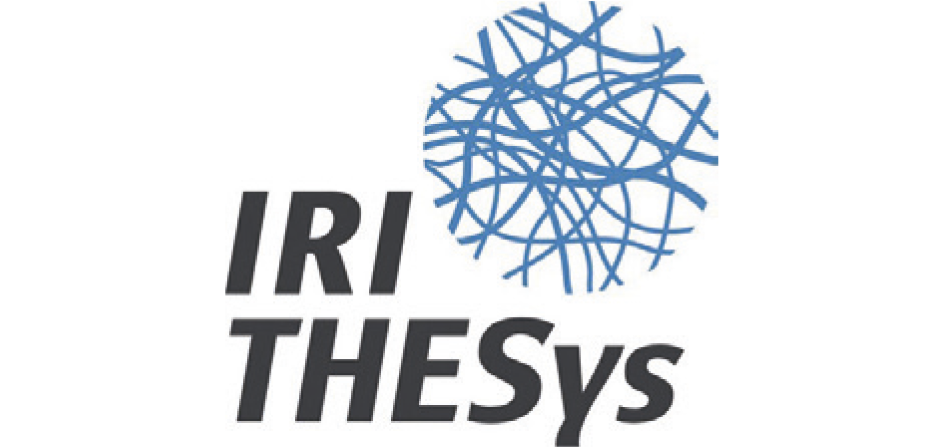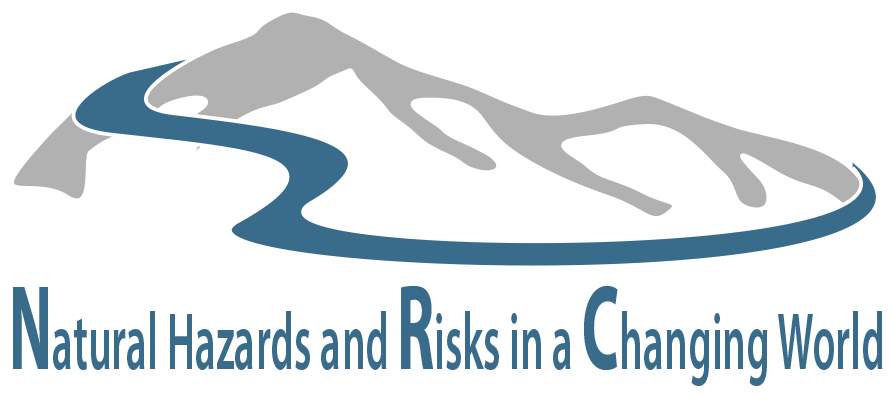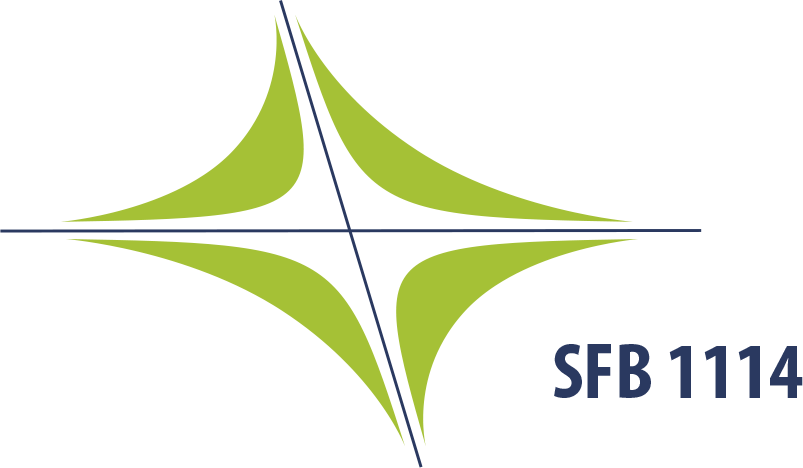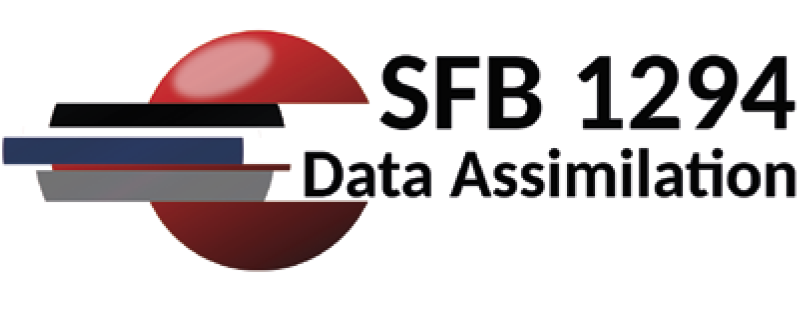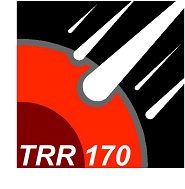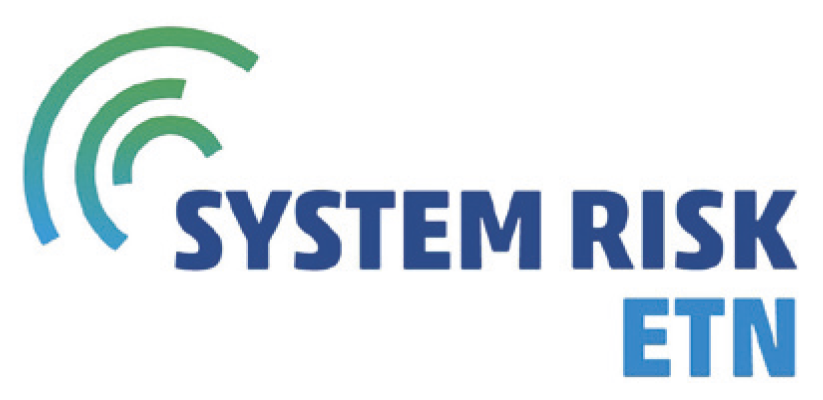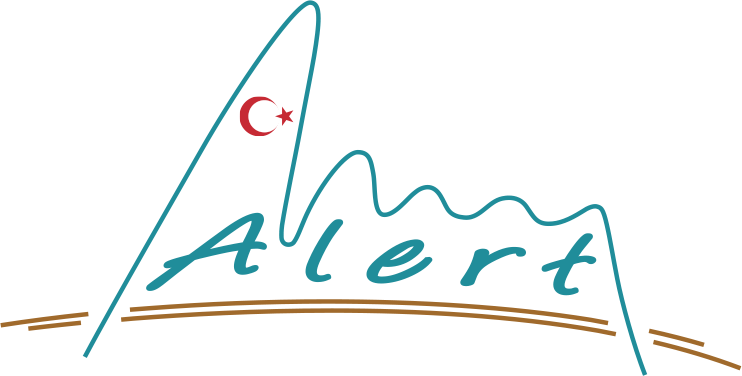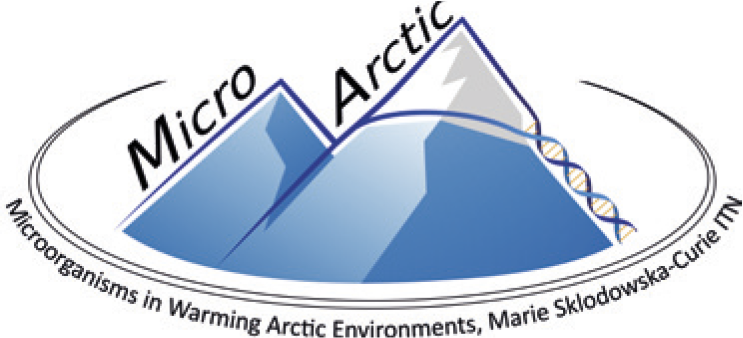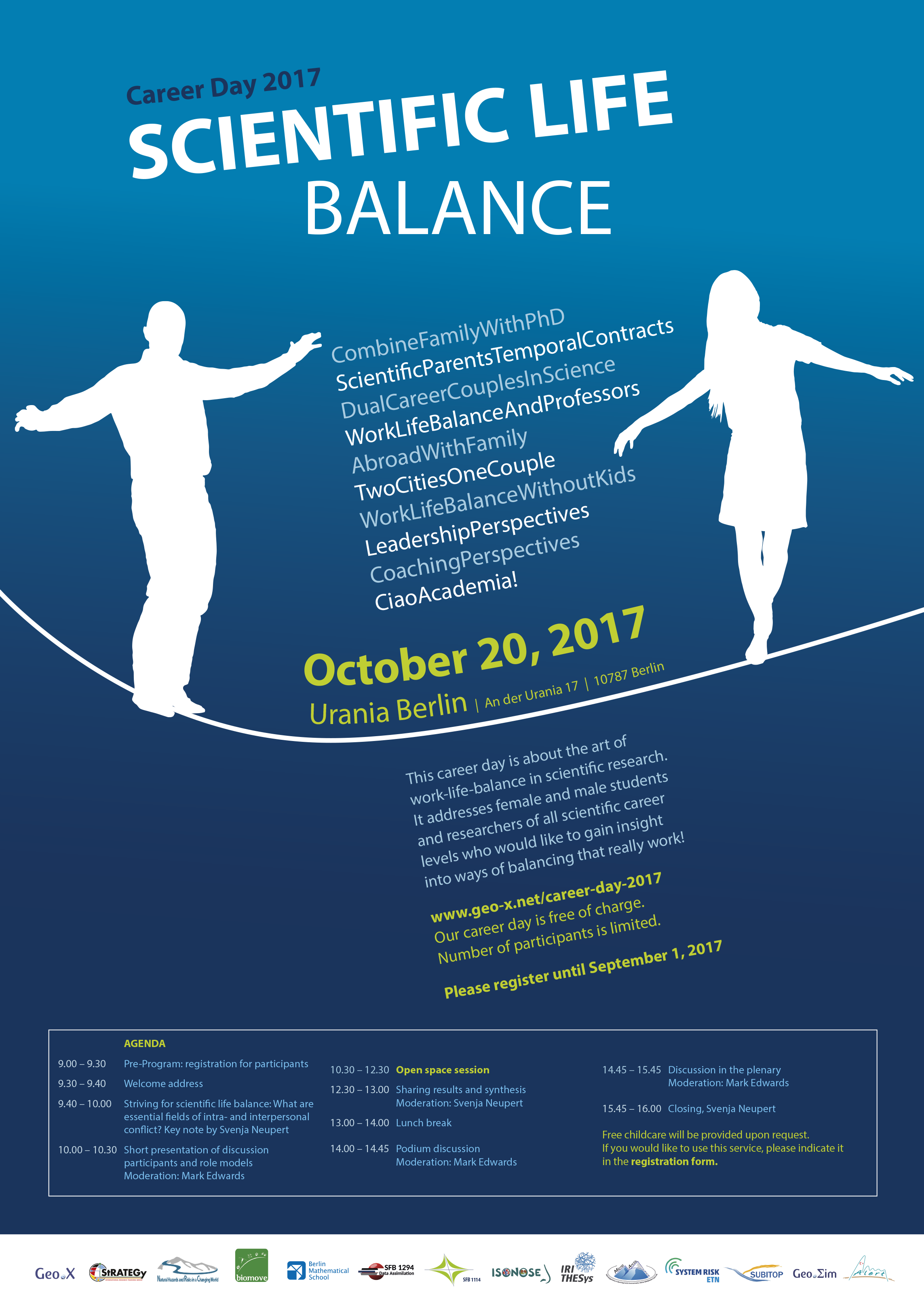Geo.X Career Day 2019
"Research based job opportunities: New careers - Equal opportunities"
For scientists, the digital era promises interesting and purposeful new careers in data science, research in industry, innovation policies, research-based consulting or start-ups for designing a responsible future. But how much science is in data science, and how much academic freedom in industry research?
This career day is about considering research-based job opportunities close to academia. Experts will give you an idea how those careers can look like and what is required for a successful career move to these new fields of work. Take the opportunity to gather information, to present yourself with your skills and ideas and to network!
9.00 to 9.30
Pre-Program: Registration and welcome coffee
9.30 to 10.15
Keynote: New work and data careers
Chris Armbruster (The Drivery) [Presentation slides]
Lisa Rheinheimer (Geo.X)
10.15 to 12.15
Pitch training and presentations
Bianca Praetorius
12.15 to 13.00
Lunch
13.00 to 15.00
Open Space: Table talks with experts
- Science to Data Science
- Research Data Management
- Scientific Digital Infrastructure
- Science to Consulting
- Innovation Policies and Research
- Research in Industry
- Start-ups for designing a responsible future
- Start-up Coaching
15.00 to 16.00
Sharing results, feedback of experts and wrap up
16.00
Network opportunities
Geo.X Career Day 2018
"Career Navigation - Equal Opportunities In and Outside Academia"
This career day is about mapping possible career pathways and offers impulses to systematically approach career decision-making. It addresses PhD candidates and researchers at all scientific career levels. Participants are invited to reflect on their preferences and potentials, and match their competencies with external requirements. Experts will assist in discovering and utilizing effective tools for career navigation.
1. Find your inner compass!
Describing yourself clearly with your work-related motives, competencies, values and aspirations is an important prerequisite in actively managing your future career choices. Such a process helps to avoid making career decisions that are subsequently not satisfactory because you feel “this is not really me”. We will have a closer look at tools for systematic self-assessment to create a basis for fulfilling career choices that satisfy your interests rather than the external requirements.
2. Benefit from supervision!
Recognizing supervision as a fundamental and bi-directional task, which will emerge at all stages throughout your career, it is essential to work out the best conditions for both sides. We shed light on how to handle typical challenges, such as opposing expectations or possible conflicts. By discussing ways of communication and approaches to problem-solving we hope there will be initial shifts of value towards a positive cooperation within supervision relations.
3. Explore your options!
Identifying opportunities in science and beyond (as potential work locations) is a crucial and truly challenging task after finishing your PhD research. We exchange different perspectives on academic research and explore the gap between expectations and reality. By discussing possible connecting factors from working environments to academia, you will gain insight into how to match those options regarding your quality and interests. You will also meet role models from various backgrounds and ask them about their experience and factors leading to successful career decision making.
4. Master self–marketing!
Self-marketing is the conscious emphasis on your strengths, abilities and knowledge. The type and degree of self-marketing strategies varies and needs to be adjusted to certain situations, such as re-entry after a period abroad, parenthood or non-academic positions. Authentic self-marketing helps to highlight your competencies in order to open doors and find your personal career path. Self-marketing also encompasses professional networking and ends in successful negotiating on framework conditions. In addition we can have a look at fruitful mentorship as well as discuss the value of additional qualification training.
Please note: no individual counseling or coaching session will be offered that day. We will have an open table talk format since we believe that knowledge shall be collected in the crowd and we look forward to all participants benefiting from each other.
09:00 to 09:30 a.m.
Registration - Welcome Coffee
09:30 to 10:15 a.m.
Lead-In
10:15 to 12:30 a.m.
Open Space - Table Talks
- Find your inner compass!
Hosts:
Svenja Neupert (Kompetenzia International),
Dr. Annett Hüttges (GFZ) - Benefit from supervision!
Hosts:
Prof. Dr. Patrick Hostert (HU Berlin),
Prof. Dr. Rupert Klein (FU Berlin) - Explore your options...
Hosts:
Dr. Gregor Botero (GKV-Spitzenverband)
Dr. Peer Hoth (Federal Ministry of Economics and Technology) (tbc)
Dr. Sabine Hunke (HU Berlin)
Dr. Marco Sarich (keylight GmbH)
Jan Strohschein (greenjobs GmbH)
Dr. Andreas Loos (ZEIT online)
Jun.-Prof. Dr. Nikki Vercauteren - Master self-marketing!
Hosts:
Prof. Dr. Hugues Lantuit (AWI)
Wera Schmidt (Uni Potsdam)
12:30 to 13:30 p.m.
Lunch Break
13:30 to 14:30 p.m.
Open Space - Harvesting
14:30 to 15:30 p.m.
Fishbowl Discussion
Moderation:
Dr. Thomas Bruhn (IASS Potsdam)
15:30 to 16:00 p.m.
Wrap up - Take home message
Geo.X Career Day 2017
"Scientific Life Balance"
Video
October 20th, 2017
The Art of Work-Life Balance in Science
(Nadine Dräger-Sandowski)
As a scientist you can potentially always work
Science is more than a job – it is passion, hobby and satisfies your curiosity. Exactly for these reasons it is very easy to get caught in your job and to put the personal life aside. What is mostly overseen, however, is that contentedness and happiness are the motors of our creativity and should be one of our highest values.
Many own ways of balancing science and life
To help early career scientists on their way to more balance between private life and their job, 13 structured programs within the Geo.X network organized a career day with the topic Scientific Life Balance on the 20.10.2017 in the Urania Berlin. Svenja Neupert and Mark Edwards, both coaches with a lot of expertise on this subject, lead through the day. The participation of more than 100 young scientists up to experienced professors promoted the exchange of ideas and dispel of common prejudices.
Important questions were: How to arrange work and personal life? How to establish job security? How to stay in academia with children or time-consuming social engagement? The participants additionally exchanged experiences on the life of couples in different cities and the management of two careers in one family. Another important element was the perspective of leaders and professors who presented their strategies and perspectives for a satisfying work-life balance in science.
Need for small tips with a big impact
The discussions on this day revealed that already small changes can contribute to a much healthier work-life-balance. Svenja Neupert suggested to figure out: How do you want to spend your time? What is it that makes you happy? And which visions do you want to follow in life? In answering these questions, it will be easier to configure your individual life compass, which navigates you to your preferred balance of work and private life.
Important practical tips include:
- Define your boarders, clearly communicate what you want and negotiate your needs and wishes with people you are working with.
- Improve your time management. Work less but more efficient, benefit from flexible working hours and find the worktime that suits you. Take your vacation days.
- Use offers for counseling, coaching and mentoring opportunities on career orientation.
- Collaborate with colleagues instead of creating competition.
- Know the services for childcare or coaching at your institute and university.
- Know your legal possibilities regarding home office, family friendly hours of meetings, seminars and workshops.
- Reduce financial pressure by developing a scientific and an entrepreneurial mindset. Identify your skills, which allow you to also work outside of academia.
Structural changes in the science system
Our participants of the panel discussion pointed out that each of us is personally responsible for or a healthy work-life balance on the individual, but there are also relevant issues about the system that must be changed:
- Reduction of the publication pressure by also considering the quality of papers and the benefit for the society.
- Introduction of more flexible contracts like part-time positions even at professor level and job sharing.
- Review of funding programs to better combine family and research.
We would like to sincerely thank all participants for the lively discussions and for sharing their experiences. These insights were extremely valuable for emphasizing the challenges all scientists are faced with in managing their scientific work-life balance. We aim to continue and deepen this discussion in 2018.






























